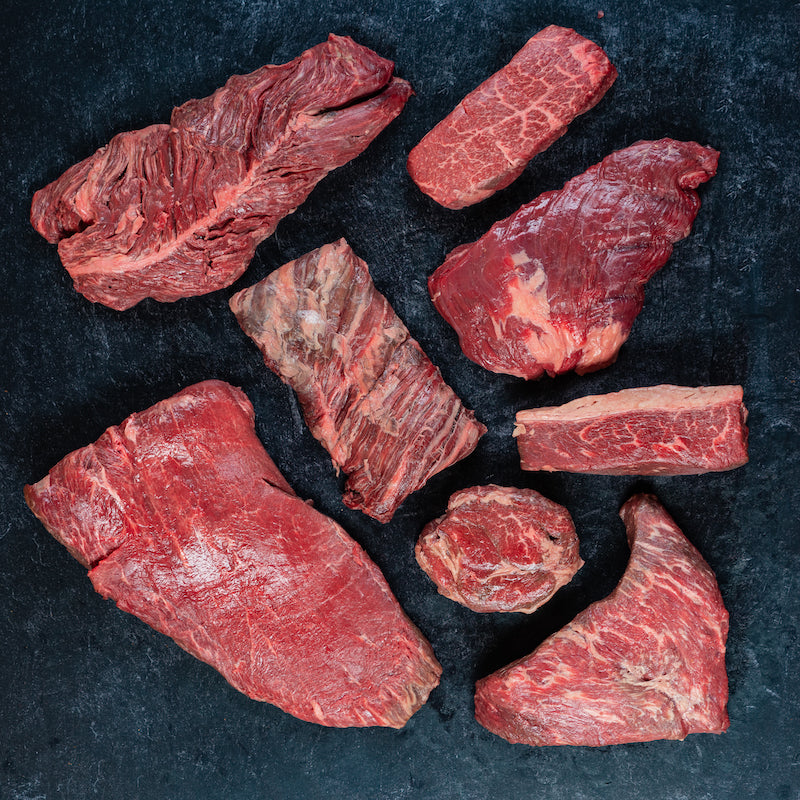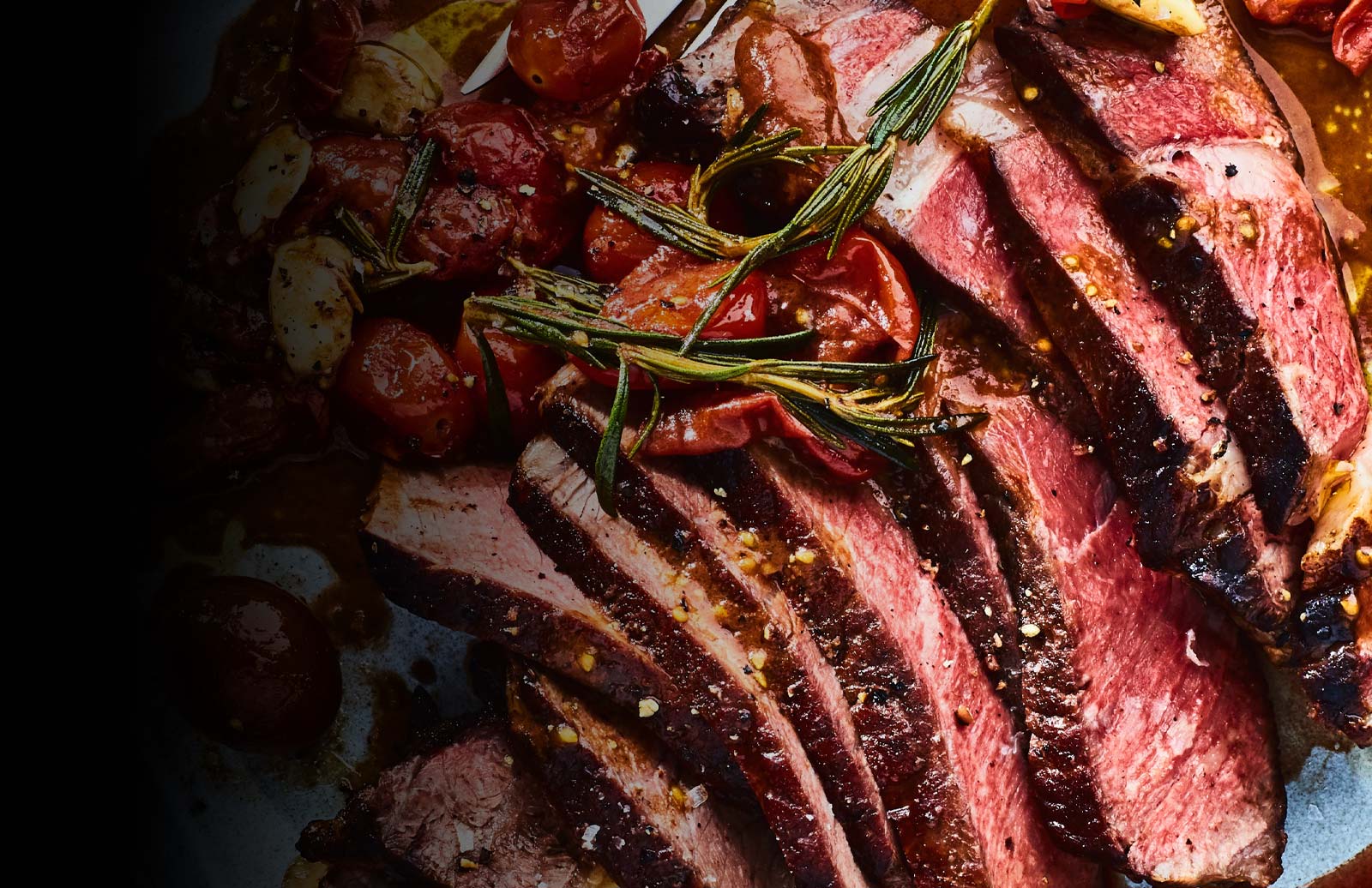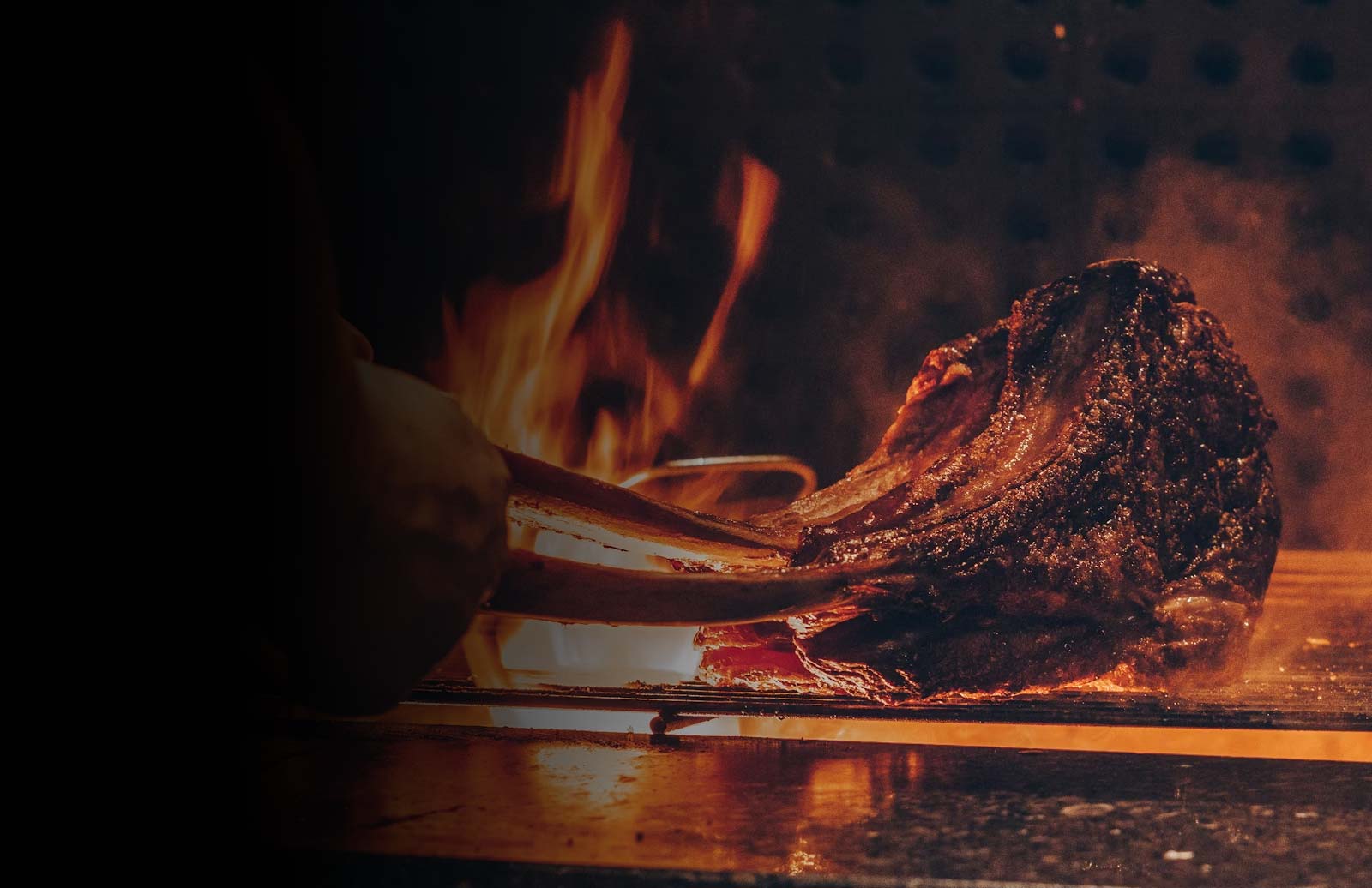What is Whole Animal Butchery?
Whole animal butchery is the process of sourcing, slicing and utilizing the entire animal for meat. This process is done by hand by an experienced butcher, as each animal is different. Whole animal butchery is an ancient tradition going back to the earliest humans hunting for food, and while it is the norm in many countries around the world, whole animal butchery is only recently making a resurgence in America and can be seen in the recent opening of artesian butcher shops across the country.

While it is true that all animals, even those processed at large, commercial facilities, must be cut by hand, these larger producers use an “assembly-line” type of butchery, with underpaid workers standing for long hours, close together, in a dangerous facility, making the same repetitive cut on many animals per day. In contrast, whole-animal butchery is done at small butcher shops where skilled artisans commit to focusing on one animal at a time. These experts utilize every possible part of the animal, from muscles to organs to tendons, fat, and bones.
Whole animal butchery embodies respect to the animal by using every part. Showing respect to the rancher by paying a fair price. Showing respect to the customer by maximizing value and providing variety, and showing respect to agricultural lands by supporting environmental sustainability.

We at Carter Country don’t raise a ribeye, we raise a cow. When you purchase from Carter Country Meats, you are supporting family ranchers and whole animal butchery. We are committed to maximizing the use of each responsibly-raised animal and providing you and your family with the entire spectrum of beef products; from high-end steaks to everyday sausage and burger.

How does Carter Country Meats use Whole Animal Butchery?
When you purchase a Big Horn Box from Carter Country Meats, you don’t just get steak, you get the whole cow! You’ll find three “tiers” of high-quality, sustainable, ethically raised, grass-fed, dry-aged beef. The first tier is Top-Level Steaks. These rare cuts are prized for their generous marbling, extended dry-age, and are hand-selected by us to be the best of the best. These steaks are what would be served at a high-end steakhouse for top dollar. These cuts include our 45 Day Dry Aged Ribeye Tomahawk, Fillet Mignon, Flat Iron, and 45-day dry aged New York. Top Level Steaks cuts make up 15% of each Big Horn Box.

The next tier is secondary steaks, which are the working muscles of the cow (think “dark meat” on chicken). These include flavorful steaks such as Tri-Tip, Culotte, Flank, Skirts, Denver Steaks, Hanging Tender, Top Sirloin. These make up 35% of your Big Horn Box.
Then, the third tier is ground beef, hamburger patties, stew meat, and sausage, such as our spicy Hot Links and savory Summer Sausage. These are the Carter Country versions (that is, dry-aged, grass-fed, sustainably raised and high quality) of your everyday, family-friendly beef products. These make up 50% of your Big Horn Box.
When you purchase Carter Country Meats, you are actively participating in supporting American beef, whole animal butchery, and sustainable and ethical environmental practices.
Why does Whole Animal Butchery matter?
Animals that have been butchered whole are of higher quality than mass-produced, industrial meat. Butchers and chefs have long sought locally-raised, responsibly-sourced, sustainable meat — now you can too! Also, whole animal butchery saves (animals’) lives. When we utilize each part of a single animal, we need fewer animals to feed more people.

In addition, one of our rights and responsibilities as eaters is knowing where our food comes from. Knowing where your food comes from is crucial to making educated purchasing decisions. You vote with your dollars and it matters whether you buy imported or domestic products, edible or not. For reasons such as supporting local economies and animal welfare to making healthy decisions, it is important to many consumers to support American-made products, especially domestic and local food.
Under current legislation, country of origin labeling is voluntary for pork and beef, but is still required for vegetables, fruits and nuts. This means that when you purchase beef labeled as a product of the U.S.A., it might actually be from Uruguay, Argentina, or Africa, and may only have been slaughtered here before being packaged for sale.

In contrast, when you buy Carter Country Meats, you are getting 100% American beef, raised on our property and sourced from our neighbors in and around Wyomings Big Horn Basin.



